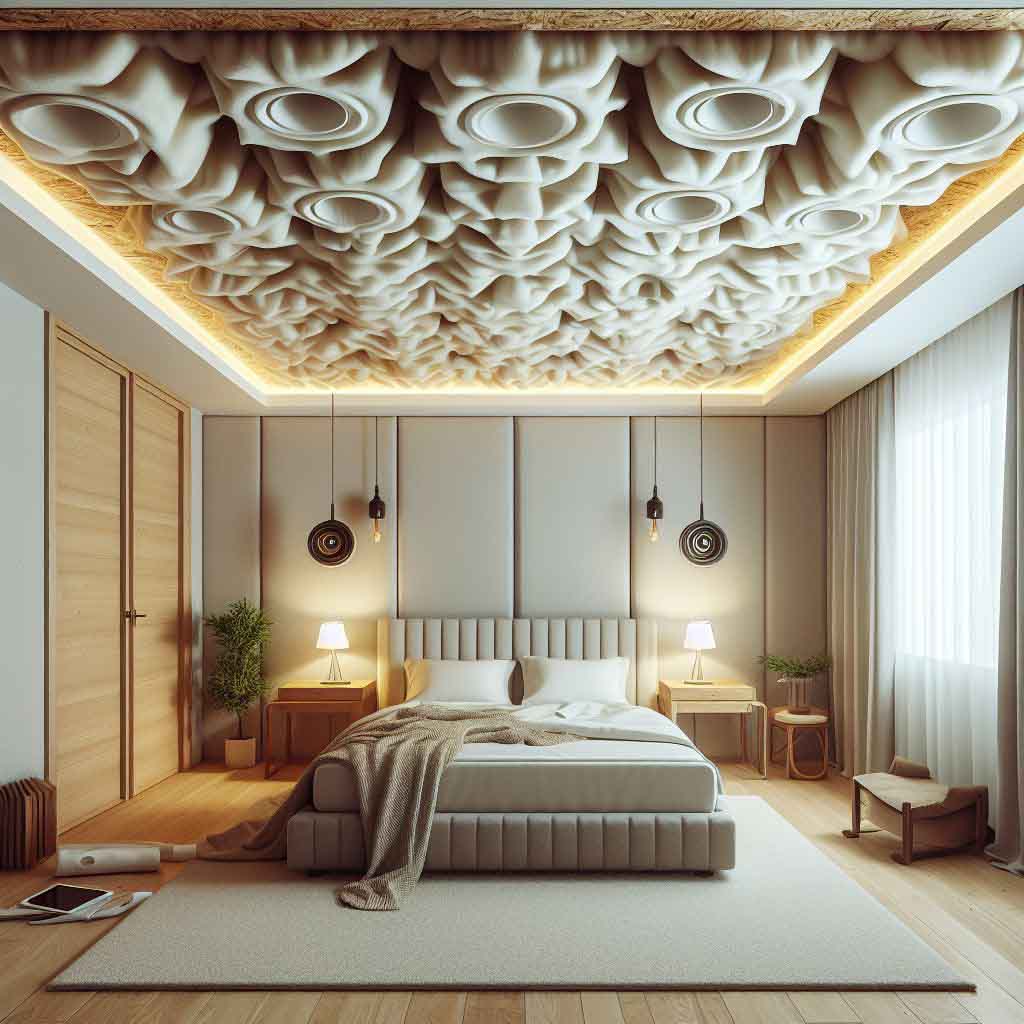Soundproofing a room plays a crucial role in creating a comfortable atmosphere, especially in a bedroom where peace and quiet are essential for restful sleep. One key area of soundproofing is the ceiling, which can allow noise from neighbors, appliances, or street traffic to penetrate. In this article, we will explore various methods, materials, and technologies that can be used to soundproof a bedroom ceiling.
Methods of soundproofing a ceiling
1. Ceiling insulation
Insulating the ceiling can improve its soundproofing by using a thick layer of insulation to absorb sound waves. Materials such as mineral wool or foam boards can be installed between the ceiling and the finishing layer to achieve this effect.
2. Use of soundproofing materials
Specialized soundproofing materials, such as soundproofing panels or rolls, can be installed on the ceiling to reduce sound transmission. These materials are designed with properties that absorb sound waves and can be effective when properly installed.
3. Installation of suspended ceilings
Suspended ceilings made of soundproofing materials or specialized panels can be an effective method of soundproofing. They create an air gap between the main ceiling and the suspended one, which helps to absorb sound.
4. Installing acoustic panels
Acoustic panels, specifically designed for sound absorption, can be installed on the ceiling. They come in various shapes and sizes, and the choice of a particular model depends on individual preferences and room design.
Materials for soundproofing a ceiling
1. Mineral wool
Mineral wool is one of the most popular materials for soundproofing. It has good soundproofing properties and is easy to install on the ceiling.
2. Foam boards
Foam boards are also well-regarded for soundproofing. They are lightweight and highly effective in absorbing sound.
3. Soundproofing panels
Soundproofing panels are made from specialized materials with enhanced soundproofing properties. They come in various shapes and thicknesses depending on the required level of soundproofing.
4. Acoustic panels
Acoustic panels are designed specifically for sound absorption and can be made from materials like fiberglass or mineral wool.
Soundproofing technologies for ceilings
1. Noise-absorbing coatings
Special noise-absorbing coatings can be applied to the ceiling to enhance its soundproofing. These coatings create an additional layer that can absorb sound waves.
2. Soundproofing systems
Modern soundproofing systems can include various components such as soundproofing materials, seals for joints, and specialized construction solutions for maximum efficiency.
3. Specialized construction designs
In some cases, specialized construction designs like double or triple ceilings with an air gap between the layers can be used to enhance ceiling soundproofing.
Importance of proper soundproofing during interior works
Proper soundproofing of a room begins with the design and interior works stage. It is crucial to consider not only the ceiling but also the walls, as sound can travel through them. Choosing the right materials for the walls and ceiling, as well as ensuring proper installation, contributes to effective soundproofing.
Soundproofing the Walls
The walls play a significant role in soundproofing a room. To achieve optimal results, specialized soundproofing materials and constructions should be used. Proper installation and sealing can greatly reduce sound transmission.
Comprehensive Approach
For maximum soundproofing, a comprehensive approach that includes insulating and soundproofing the ceiling, walls, and floor is recommended. This allows for the creation of a truly quiet and comfortable space for relaxation.
Conclusion
Soundproofing a bedroom ceiling can be achieved through various methods, including insulation, specialized materials, and technologies. The choice of specific materials and methods depends on individual requirements and the characteristics of the room, but properly selected and installed soundproofing solutions can create a quiet and cozy atmosphere in the bedroom.



